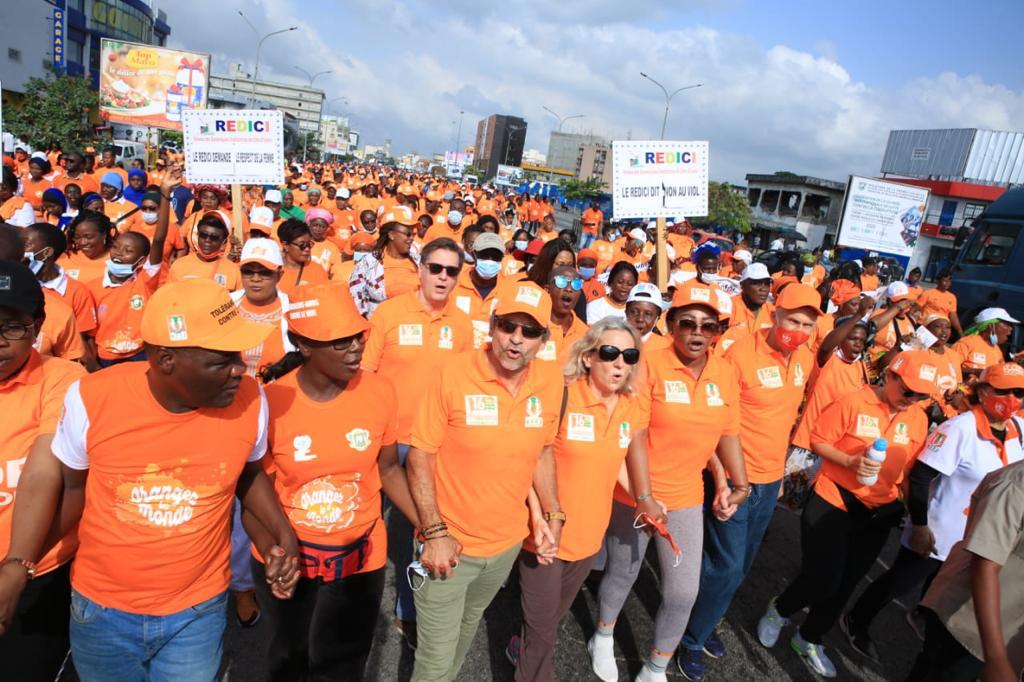
Fight against violence against women and gender/HIV

General context and main challenges
In Côte d'Ivoire, the main issues of gender-based violence are cases of sexual violence, rape, domestic violence, female genital mutilation, and early marriage. Despite positive developments in the prevention of and response to gender-based violence in Côte d'Ivoire, significant challenges remain, including accountability, access to justice for survivors, and impunity for perpetrators:
- Access to justice is associated with a lack of information about legal remedies and procedures, poor understanding and lack of confidence in law enforcement, and poverty and socio-cultural constraints;
- Impunity persists because of low public awareness, socio-cultural barriers, and social pressure to remain silent or to pursue "amicable settlement" options. Impunity also stems from the non-application of texts and laws aimed at punishing these forms of violence in Côte d'Ivoire;
- A persistent problem is the lack of awareness among police officers, who still require victims seeking to file a complaint to first present a medical certificate. The high cost of the medical certificate and the refusal of doctors to provide it free of charge to survivors are also factors that impede reporting;
- Access to justice and legal protection for women and girls is primarily affected by social barriers, particularly in relation to issues of sexual abuse, early marriage, and FGM. Legal practitioners have a limited understanding of the intellectual, psychological, and emotional development of children.
UN Women's actions in Côte d'Ivoire
- The country office evaluated the national GBV response mechanisms in 2015, which are: the gender focal points, the GBV multi-sectoral platforms and the GBV reception centers. An evaluation report (based on effectiveness, efficiency, sustainability and impact) is available;
- The Office provides technical and financial support to civil society organizations in their response and strategy against gender-based violence (expertise, grants);
- The Country Office provides technical assistance to civil society organizations in the implementation of UN Trust Fund Spotlight Grants to end violence against women;
- The Country Office supports the National HIV/AIDS Program (PNLS) to (i) organize a prevention campaign in national women's training and education institutes - (ii) provide guidance on HIV-related legislation to peer educators who deal with sex workers) - (iii) promote the national protection and reporting tool;
- The country office actively participated with technical assistance to the Ministry of Women, Family and Children and financially supported the process of developing the (new) National Action Plan on FGM in 2019.
Latest news
07/05/2025
02/05/2025